We’re excited to introduce you to the always interesting and insightful Khalisa Rae Thompson. We hope you’ll enjoy our conversation with Khalisa Rae below.
Alright, Khalisa Rae thanks for taking the time to share your stories and insights with us today. I’m sure there have been days where the challenges of being an artist or creative force you to think about what it would be like to just have a regular job. When’s the last time you felt that way? Did you have any insights from the experience?
Am I happier as an artist or creative? It’s not a simple yes or no—it’s more like asking if the ocean is happier being water.
Being creative isn’t just what I do; it’s who I am. It’s how I process, how I breathe. Creating lets me take chaos—whether it’s joy, anger, heartbreak, or confusion—and turn it into something tangible, something meaningful. There’s a kind of fulfillment in that which feels like happiness, but also something deeper: purpose.
But happiness? Not always. Sometimes it’s grueling. Sometimes it’s lonely. Sometimes being creative feels like holding a mirror up to yourself and not liking what you see. Or like chasing something fleeting you can’t quite capture.
Still, when I step back and see something I’ve made—something that didn’t exist before I dreamed it up—that’s when I feel alive. And maybe that’s a kind of happiness too.
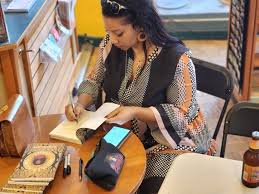
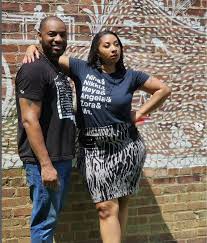
Khalisa Rae, before we move on to more of these sorts of questions, can you take some time to bring our readers up to speed on you and what you do?
I’m a passionate advocate for storytelling, creativity, and community, rooted in my experiences as an author, literary arts director, and cultural organizer. For the last 20 years, I have been working as an arts event curator, author, arts administrator, writing workshop facilitator, and speaker. I am the author of two collections, including my full-length poetry book, Ghost in a Black Girl’s Throat. My poetry collection, Ghost in a Black Girl’s Throat, is a haunting and powerful exploration of the erasure and silencing of Black women throughout history and in contemporary society. Through vivid, evocative language, the book gives voice to the ghosts—both literal and metaphorical—that reside within Black girls and women, highlighting their struggles, triumphs, and the weight of generational trauma. It addresses themes of identity, race, survival, and healing, while serving as a call to reclaim space, voice, and power.
Speaking about race and identity is vital to me because these conversations challenge systems of oppression, rewrite dominant narratives, and make space for authentic representation. As a Black woman that has lived in both the Midwest and now the South for 20 years, I understand the importance of acknowledging and honoring the complexities of race, class, gender, and geography. My work—whether through poetry, essays, or advocacy—seeks to amplify voices that are too often silenced, to ensure the stories of Black women and marginalized communities are heard, celebrated, and preserved. It’s through these stories that healing, connection, and transformation become possible.
My own experiences as a Black woman in the South deeply shaped the themes and urgency of Ghost in a Black Girl’s Throat. I have firsthand knowledge of what it means to navigate spaces that often overlook or dismiss Black voices, particularly those of women. The silences I’ve felt, the injustices I’ve witnessed, and the resilience I’ve seen in others are all woven into the fabric of my writing.
The collection reflects my personal journey of reclaiming identity and agency. It’s both a testament to the weight of generational trauma and a celebration of the strength and creativity that Black women have always brought to the world. The ghosts in your work are not only symbols of loss but also reminders of the stories that demand to be told, the truths that refuse to be buried.
For me, speaking about race and identity is not just important—it’s essential. It’s a way to shine a light on the forces that shape our lives and to create space for healing and solidarity. By addressing these topics in my poetry and public work, I hope to inspire others to embrace their truths, confront uncomfortable realities, and find beauty in their own voices.
My journey into this industry was fueled by my love for words and my commitment to representation. Spending my adult life in the South, I was always drawn to the transformative power of stories, especially those that reflect the complexities of Black and queer identity. This passion led me to co-found the Griot & Grey Owl Black Southern Writers Conference, a space dedicated to celebrating Black Southern writers and exploring themes of home, heritage, and justice.
As an author, I’m currently working on a YA novel in verse and an essay/poetry collection entitled Black and Queer in the South, which delves into the intersections of race, class, gender, and geography. These projects allow me to explore the stories that often go untold and create space for voices that have been historically silenced.
It’s been a rewarding journey shaped by collaboration, creativity, and a deep desire to celebrate and uplift our stories. It has not been an easy road, but all of the challenges and trials so far have been worth it.
Currently, I serve as the Theater and Literature Director at the North Carolina Arts Council, where I work to support artists and foster opportunities for creativity and cultural expression. Alongside that, I’m an author, currently working on my next YA novel in verse, a project that allows me to delve even deeper into the power of storytelling to inspire and connect.
I’m also one of the co-founders of the Griot & Grey Owl Black Southern Writers Conference, where we celebrate and amplify the voices of Black Southern writers. Through this platform, I help curate events, workshops, and opportunities that empower writers to share their stories authentically while exploring themes of identity, heritage, and belonging.
In addition to the conference, I’m involved in organizing community-driven projects like literary performances, partnerships with local colleges, writing workshops, and more, all designed to inspire creativity and make space for artists and writers of diverse backgrounds. My work focuses on creating platforms for underrepresented voices, particularly in the South, and fostering connections between creators and their communities.
This year, I have several goals I’m passionate about achieving:
Finish and publish my next YA novel in verse, continuing to tell stories that resonate with young readers while exploring themes of identity, growth, and resilience.
Expand the reach of the Griot & Grey Owl Black Southern Writers Conference, making it even more accessible to emerging Black writers in the South.
Develop more writing workshops and mentorship programs for young and aspiring writers, particularly those from underrepresented communities.
Build stronger partnerships with local colleges and arts organizations to create sustainable opportunities for writers and creatives to thrive.
Continue championing cultural preservation and authenticity in the arts, ensuring that the stories and voices of our communities are uplifted and heard.
What sets me apart is my commitment to authenticity and cultural preservation. My work isn’t just about showcasing talent—it’s about creating lasting impact, honoring the heritage of those who came before us, and challenging the erasure of marginalized narratives.
Starting an artist newsletter of opportunities and resources and a women’s writing club.
What I’m most proud of is building spaces where people feel seen, heard, and valued. Whether it’s through the conference, a poetry collection, or a workshop, my goal is to remind people that their stories matter.
For anyone interested in my work, I’d want them to know this: everything I do is grounded in a love of community and storytelling. I’m here to inspire, to amplify, and to make sure that no voice gets left behind. Whether you’re a writer, an artist, or someone searching for connection through creativity, there’s a place for you in the spaces I create.
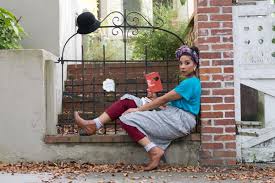
How can we best help foster a strong, supportive environment for artists and creatives?
As a writer, cultural organizer, and advocate for the arts, I’ve seen firsthand the transformative power of storytelling and creativity in shaping our communities and identities. Through my work with the Griot & Grey Owl Black Southern Writers Conference and the North Carolina Arts Council, I’m constantly reminded that a thriving creative ecosystem doesn’t happen by chance—it requires intentional support, investment, and collaboration.
When we ask what society can do to nurture artists and creatives, the answer lies in prioritizing equity, accessibility, and sustainability while recognizing the critical role of art in reflecting and reshaping the world around us. Here’s how we can build a more supportive and thriving creative landscape:
Fund Community-Based Cultural Programs
Initiatives like the Griot & Grey Owl Black Southern Writers Conference are vital in celebrating regional and cultural identities. Society can provide sustainable funding to programs that amplify Black Southern voices, foster connections, and inspire creativity. Grants from institutions, local governments, and private donors should prioritize these culturally rooted initiatives.
Support Storytelling that Centers Marginalized Voices
The work of creatives of color demonstrates the power of storytelling in reclaiming identities and histories. Society should actively support platforms, book fairs, and events that focus on narratives often left out of mainstream discussions.
Create Accessible Spaces for Art and Dialogue
After polling artists and organizations, the second biggest hurdle they always mention that keeps them from continuing their work is space to create, produce, and practice their art. The rise in sustained art events decreasing throughout our state and artists not maintaining their practice, demonstrates the need for physical spaces where writers, artists, and audiences can connect. Public and private entities can invest in creating and maintaining affordable, inclusive venues for creatives to share their work.
Partner with Local Creatives
Our partnership between Griot & Grey Owl and the local universities is an excellent example of collaboration. Businesses, schools, and organizations should regularly partner with creatives to co-host events, promote local talent, and incorporate art into everyday spaces.
Invest in Artist Development
Through my work at the NC Arts Council, I’ve helped inform artists and creatives about paid gigs and events for writers and performers. Expanding such opportunities—artist residencies, mentorships, and professional development workshops—can help artists thrive long-term. Supporting creatives through training in grant writing, marketing, and publishing empowers them to sustain their careers.
Lower Barriers to Entry
The bookswap initiative for the Griot & Grey Owl conference shows the importance of accessibility. Offering scholarships, reduced ticket prices, or pay-what-you-can models ensures that artists and audiences, regardless of financial status, can participate in cultural events.
Recognize Black Arts Leadership
As a Black woman leading in arts and culture, your role highlights the importance of diverse leadership. Society can invest in leadership development programs for Black artists and administrators, ensuring more voices like yours shape cultural policy and programming.
Celebrate and Archive Regional Arts
Documenting and preserving the contributions of Black Southern writers and artists ensures that future generations understand their cultural significance. Organizations and governments can fund archives, oral history projects, and anthologies like those you’re working on.
Create Year-Round Programming
Beyond conferences and one-off events, society can fund and host ongoing workshops, reading series, and collaborative projects. This creates consistent opportunities for engagement and income for artists.
Shift Cultural Narratives
Society must recognize that creativity is not a luxury but a cornerstone of identity, healing, and progress. The work I and so many of my peers do as an author, organizer, and advocate reminds us that supporting the arts means investing in our collective humanity. By prioritizing storytelling, particularly from marginalized communities, we create a richer, more inclusive culture for all.
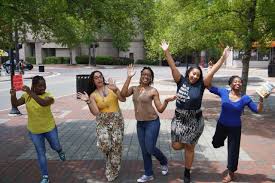
Learning and unlearning are both critical parts of growth – can you share a story of a time when you had to unlearn a lesson?
The mindset I had to unlearn was that I needed to figure everything out on my own. I spent years carrying the weight of independence, believing that to be successful, I had to be self-sufficient, not ask for help, and navigate challenges alone. This belief was ingrained in me from a young age, where the narrative around personal achievement was often about individual hard work and perseverance. But over time, and especially as I grew in my professional and creative life, I realized how limiting and isolating that mindset was.
As I took on more leadership responsibilities—whether it was organizing the Griot & Grey Owl Black Southern Writers Conference or working with the NC Arts Council—I initially carried the burden of “figuring it all out” myself. There were moments when I felt like I had to be the expert, the organizer, the one with all the answers. It created a sense of pressure and stress that eventually became unsustainable. I realized I was missing out on the richness that comes from being part of a collective. I was surrounded by brilliant people—writers, creatives, organizers, mentors—but I wasn’t tapping into their knowledge, experience, or perspectives.
The turning point came when I started to really listen to the people around me, not just as collaborators, but as resources. I began to acknowledge that there was no need to “do it all” alone. There are so many people with answers, wisdom, and ideas that could help me grow, and I simply had to ask and be open to receiving. Through this, I learned that community is everything. Success doesn’t come from being an island—it comes from creating a web of trusted people who can help keep you accountable, offer guidance when you’re unsure, and help you push through tough times. It’s about leaning on others in a way that doesn’t diminish your strength but multiplies it.
This shift in mindset has been freeing. Now, when I face challenges or moments of uncertainty, I know that I don’t have to have all the answers. I don’t have to carry the weight of figuring it out alone. I have a network of people—whether fellow artists, mentors, or friends—who can help me navigate the rough patches, hold me accountable, and offer wisdom when I need it most. This has allowed me to grow both professionally and personally in ways I couldn’t have imagined when I was trying to do it all myself.
Community isn’t just about sharing successes—it’s about sharing struggles, too. It’s about creating an environment where everyone can tap into each other’s strengths and knowledge, and that’s how we truly thrive.
Contact Info:
- Website: https://khalisarae.com
- Instagram: @khalisarae
- Facebook: https://facebook.com/kalisarae
- Linkedin: https://linkedin.com/khalisarae
- Youtube: https://youtube.com/khalisarae
- Other: @khalisarae on TikTok
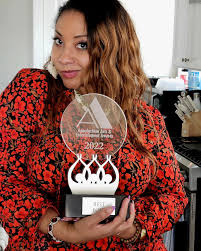
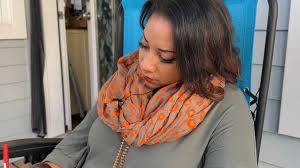
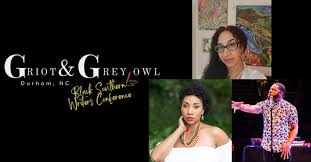
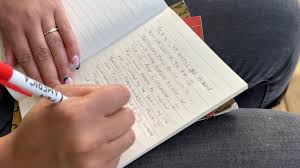
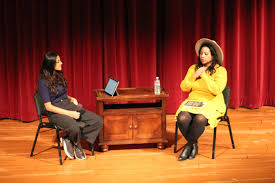
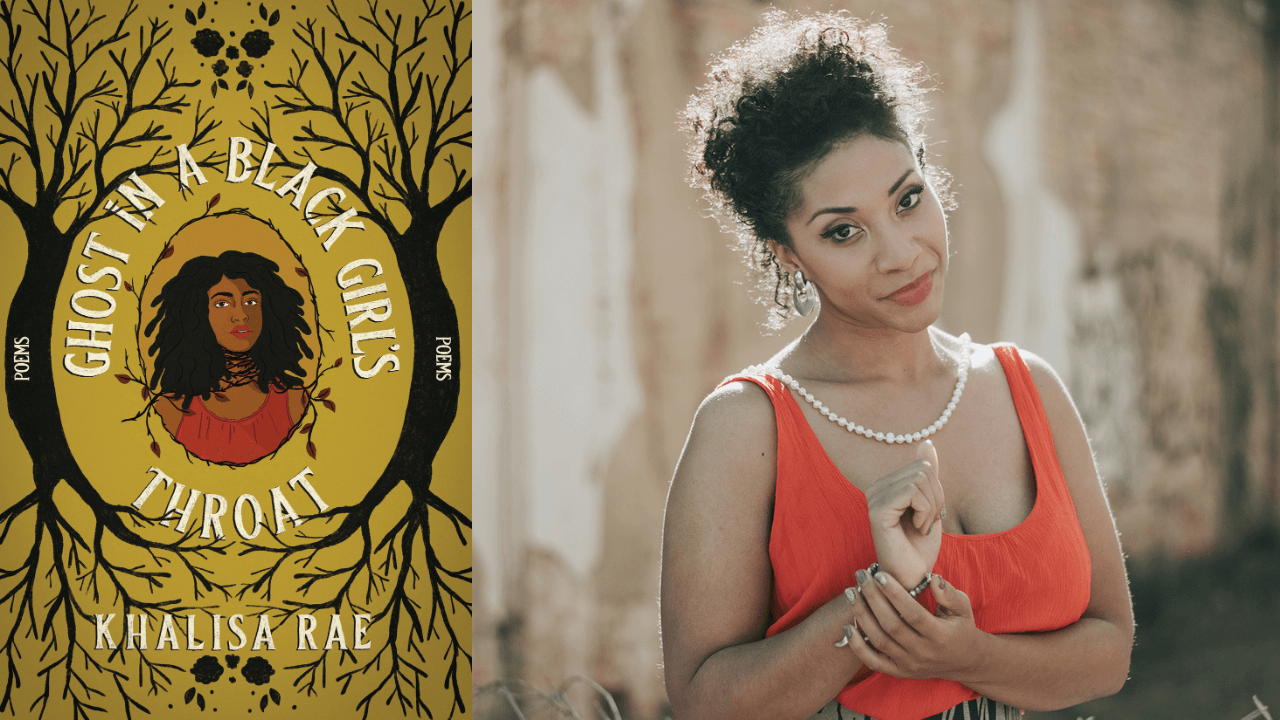
Image Credits
Eric Thompson
Spectrum News


